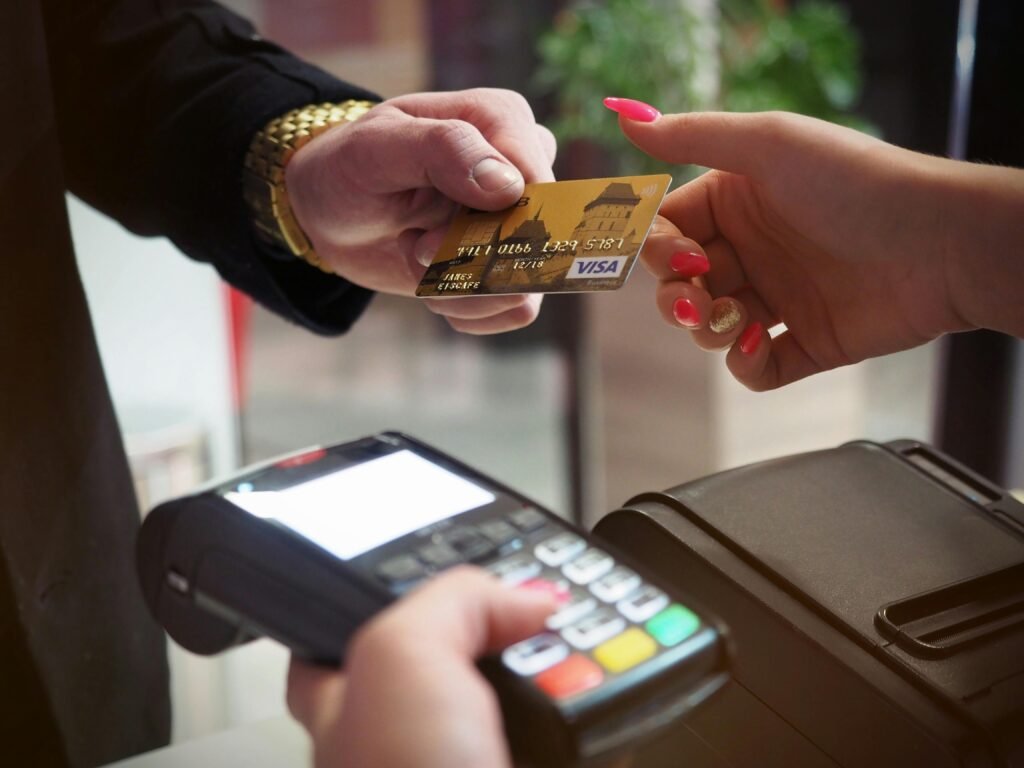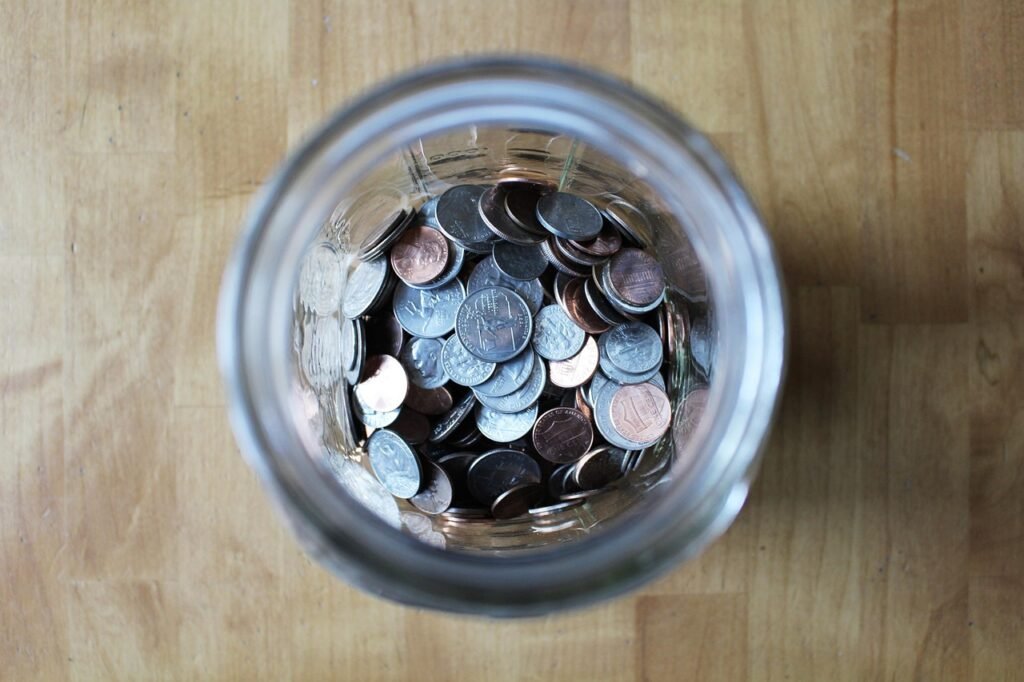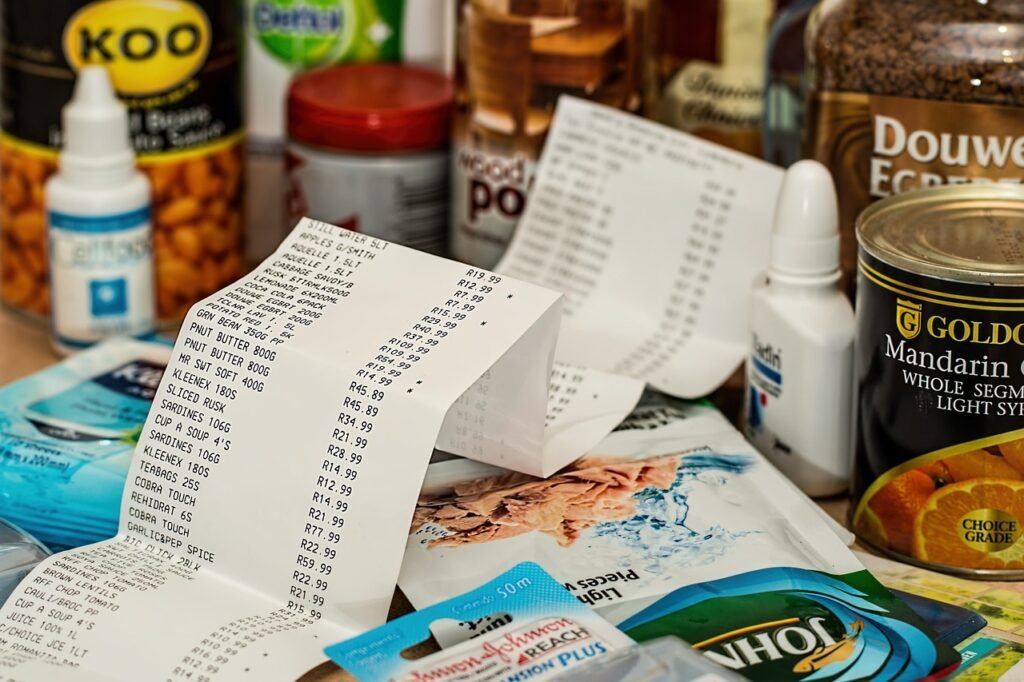Ever feel like your paycheck disappears the second it hits your account? You’re not alone. Many of us struggle to make our money stretch, even when we’re earning decent incomes. But here’s the thing — it might not be how much you make, but how you manage it that keeps you stuck.
Let’s dive into five everyday financial habits that could be holding you back — and what you can do to turn your finances around. Whether you’re trying to pay off debt, start saving for the future, or just stop living paycheck to paycheck, recognizing these patterns is the first step.
1. You’re Not Tracking Where Your Money Goes

Think you know where your money’s going? Think again. One of the biggest budgeting mistakes people make is not keeping track of their spending. It’s easy to lose sight once the bills are paid — but those little coffee runs, takeout meals, or late-night Amazon orders? They add up faster than you’d expect.
Try this: Spend a week writing down every dollar you spend. Yes, every single one. You might be shocked to discover how much goes to non-essentials you didn’t even realize you were buying.
Fix It:
- Use budgeting apps like YNAB, Mint, or Goodbudget to keep tabs automatically.
- Create spending categories — like needs, wants, and savings — and stick to them.
- Set a weekly “miscellaneous” cap for small extras so they don’t spiral.
2. Living on Credit and Dealing With Debt

Do you use your credit card to cover the gap between paychecks? If so, you might’ve fallen into the debt trap. While credit cards can be helpful when used wisely, carrying a balance month-to-month usually means you’re paying a hefty interest rate. And over time, that interest can drain your finances.
I’ve been there — using plastic to grab groceries or pay for a medical bill, thinking I’ll catch up next month. But next month comes with its own surprises. It’s a tough cycle to break, but every small step helps.
Fix It:
- Start with a realistic debt repayment plan. Try the snowball or avalanche method, whichever motivates you more.
- Stop using credit for non-emergencies until your balance is under control.
- Seek help from credit counseling services if needed — they can help you negotiate better terms.
3. You’re Not Saving Consistently

Saving money often feels like a luxury — something you do when “there’s extra.” But here’s the truth: If you wait until it feels easy to save, you’ll probably never start.
Even putting aside a small amount every month can build discipline and keep you from spiraling into debt when the unexpected happens. Emergency car repair? Medical expenses? You’ll thank your past self for planning ahead.
Fix It:
- Automate your savings — set your account to move money right after payday.
- Start small. Even $10 per week adds up to over $500 in a year. That’s a weekend trip, an emergency cushion — or just peace of mind.
- Create separate “buckets” for savings: emergency, vacation, and future goals.
4. Impulse Spending is Part of Your Routine

Ever made a purchase just because it made you feel good in the moment? Yup, guilty. That’s impulse spending — and while treating yourself every now and then is healthy, doing it often can quietly derail your entire financial plan.
Retailers know how to tempt us. Flash sales, “buy now, pay later” offers, free shipping — they’re designed to trigger emotional buying. If your spending habits feel out of control, it could mean that your emotions are calling the shots instead of your budget.
Fix It:
- Wait 24 hours before making non-essential purchases. Often, the urge fades.
- Create “fun money” funds — a fixed amount you can guiltlessly spend each month.
- Find budget-friendly ways to treat yourself: a DIY spa night, a nature walk, or a good book.
5. You’re Not Earning Enough (But Haven’t Made a Plan)

Sometimes, it’s not just spending — it’s income. If you’re doing everything “right,” cutting back where you can, and still can’t make ends meet, you may need to earn more.
This isn’t about working yourself into burnout — it’s about looking for additional income streams or making career moves that align with your goals. Living on a limited income year after year can make saving impossible, but there are ways to stretch your earning potential.
Fix It:
- Update your resume and research higher-paying roles in your industry.
- Pick up a side hustle — freelance writing, pet-sitting, ridesharing, tutoring — whatever works for your skills and schedule.
- Invest in professional development. Sometimes a course or certification can turn into thousands more per year.
Conclusion

Breaking Bad Habits Takes Time — But It’s Worth It
We all have financial habits we’re not proud of. The good news? You can learn to do better — one step at a time. The key is awareness followed by consistent action. Don’t beat yourself up for past mistakes. Instead, use them as a springboard for smarter money moves going forward.
If you’re serious about breaking the paycheck-to-paycheck cycle, these changes will set you on a solid path. Your future self — with an emergency fund, less stress, and maybe even a guilt-free vacation — will thank you.
Ready to Take Control?
Here’s a quick checklist you can start working on today:
- Track your spending for one week — write down everything you buy.
- Automate a small savings transfer right after payday.
- Make a plan to tackle high-interest debt — even $20 extra toward it helps.
- Cancel or pause one subscription you barely use.
- Set a monthly “fun budget” so you can treat yourself — without regret.
Small steps lead to big wins. Change might not happen overnight, but with consistency, you’ll start to feel less broke — and a lot more empowered.
Final Thoughts
Bad money habits can sneak up on all of us. What’s important is recognizing them and making small, steady changes. No shame. No panic. Just progress.
So, which habit will you tackle first? Drop your thoughts in the comments — let’s help each other grow and thrive financially.
For more smart money tips, budgeting tricks, and real-life financial advice, subscribe to our newsletter. Your future wallet will thank you!

